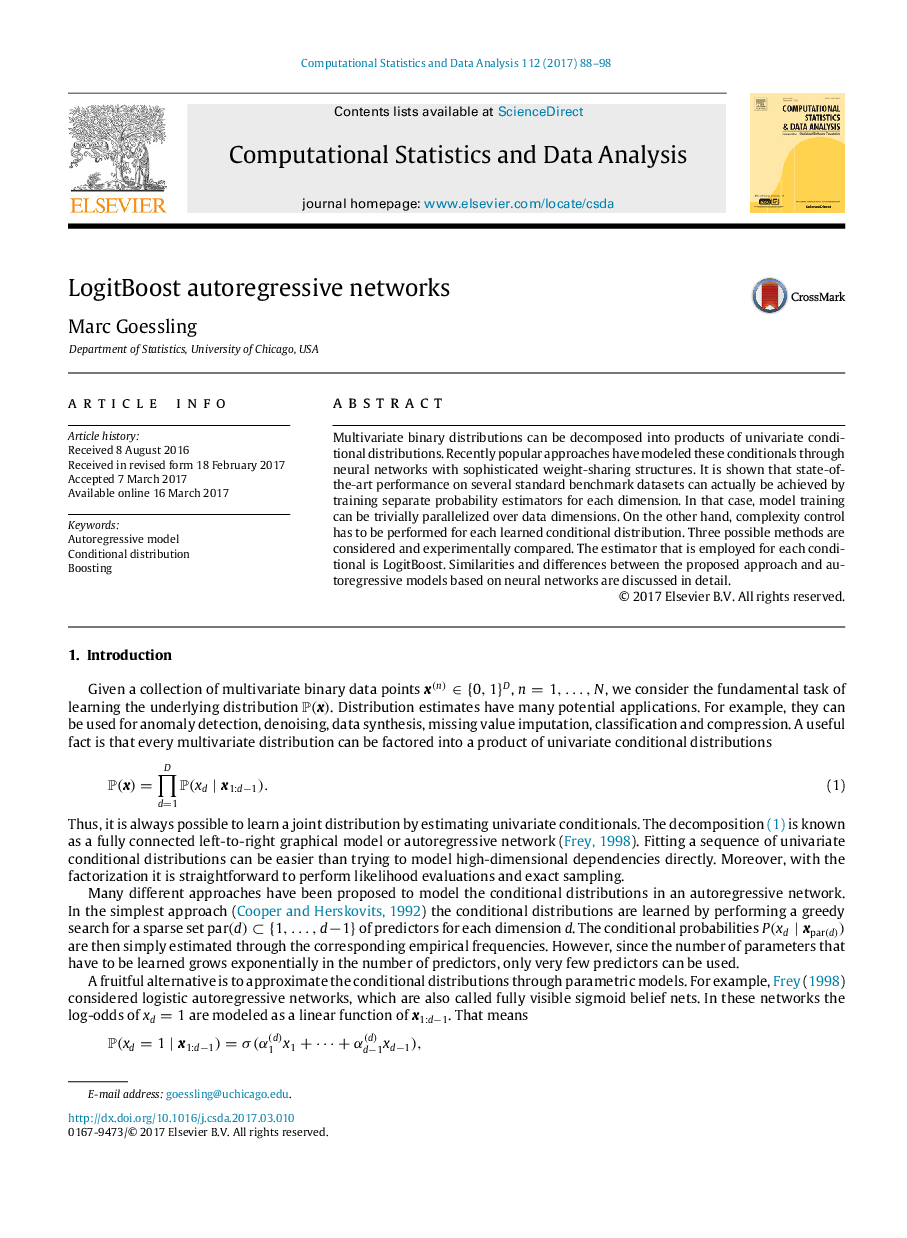| Article ID | Journal | Published Year | Pages | File Type |
|---|---|---|---|---|
| 4949322 | Computational Statistics & Data Analysis | 2017 | 11 Pages |
Abstract
Multivariate binary distributions can be decomposed into products of univariate conditional distributions. Recently popular approaches have modeled these conditionals through neural networks with sophisticated weight-sharing structures. It is shown that state-of-the-art performance on several standard benchmark datasets can actually be achieved by training separate probability estimators for each dimension. In that case, model training can be trivially parallelized over data dimensions. On the other hand, complexity control has to be performed for each learned conditional distribution. Three possible methods are considered and experimentally compared. The estimator that is employed for each conditional is LogitBoost. Similarities and differences between the proposed approach and autoregressive models based on neural networks are discussed in detail.
Related Topics
Physical Sciences and Engineering
Computer Science
Computational Theory and Mathematics
Authors
Marc Goessling,
